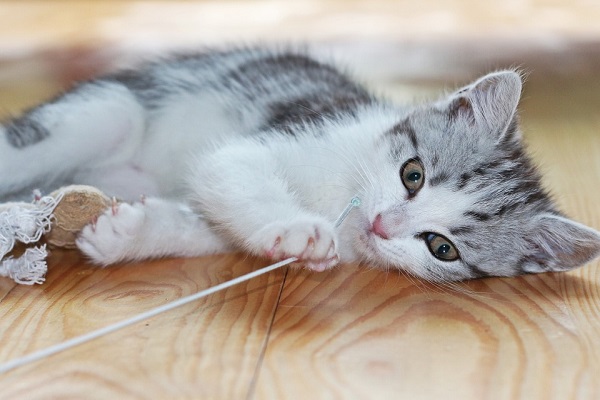A healthy cat begins with good nutrition. Cats are picky eaters and have strict dietary restrictions. There are many factors that affect your cat’s nutritional needs so it is important to consult your vet about the type of food your cat should be eating. Nonetheless, here are basic cat nutrition tips applicable for all cats.

Basic Cat Nutrition for Beginners
In the wild, cats are carnivorous hunters that prey on other animals. Large cats hunt deer, antelopes, buffaloes, and zebras. While small cats hunt smaller animals such as mice, birds, and hare. As feline parents, we are well aware of our cat’s natural instinct to hunt. We love watching them pounce and play with their toy nice and other little things.
But in order to keep our cats happy and active, they need the right nutrition. Unlike dogs, cats are very picky eaters. They may go on fatal hunger strikes if they don’t like their food. Hunger strikes can cause liver damage and illness. Also, cats have strict dietary requirements that keep them from eating different types of food.
In the wild, cats get the nutrition they need from their prey. This is not the case for domestic cats. Thus, it is important that we feed our cats food with the right nutrition. There are many factors that affect cats’ dietary needs. However, here are cat nutrition basics to begin your feline parenthood journey.
Cats Love Their Protein
Cats are natural carnivores. They get all the nutrition they need from the animals they hunt. Not only does animal protein provide the proper amino-acids cats need to build muscle and energy, it also has fatty-acids that aid protein absorption. Cats’ digestive systems process animal protein efficiently so they get all the energy they need from protein alone.
Also, it is important that cats eat animal-based protein and not plant-based. Although protein is also found in plant-based food such as legumes, grains, and vegetables, they do not contain the same amino-acids such as taurine. Taurine is the main amino-acid that is essential for cat health. Fortunately, most cat food brands come fortified with taurine.

Cats Also Drink Water
In addition to protein, cats also need water for digestion. Cats get most of their hydration from the food they eat, but they use water to help the food pass through their systems. Keeping their water bowl next to their food bowl allows them to drink as they eat. Give your cats good quality spring water and not tap water. Also, always have water available so your cat can drink throughout the day.
No Carbs, please..
Maintaining good nutrition will also keep cats from being overweight. This includes restricting the amount of food your cat eats daily as well as the type of food they eat. One forbidden food group are carbohydrates. Cats do not need carbs in their diet since they get all the energy they need from protein. Giving cats carbs not only upsets their digestion, it also converts to excess sugar in the body. This sugar then stores converts to fat, causing cats to be overweight.
Good nutrition, portion control, and exercise keeps cats healthy for a lifetime. As feline parents, we want the best for our cats and that begins with feeding their bellies with good food. If you’re using store bought cat food, check the nutrition labels to make sure it contains ample animal protein and no carbs. Also, ask your vet for your cat’s specific dietary needs. When cats are happy, they are fun, playful, and full of personality. Let’s show cats we love them by giving them a lifetime of health and happiness.

1 Comment. Leave new
I am not certain where you’re getting your info, but great topic.
I must spend a while studying much more or understanding
more. Thank you for magnificent info I used to be searching for this
information for my mission.